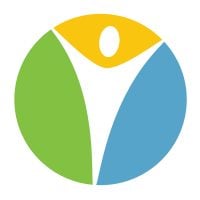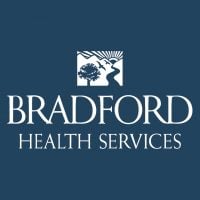
Alabama Recovery Center
Drug Rehab Center in Huntsville, Alabama
- Opioid Addiction
- Dual Diagnosis
- Drug Addiction
- Alcoholism
Alabama Recovery Center is a licensed mental health and addiction treatment facility that provides comprehensive and personalized care for all stages of addiction, including dual diagnosis treatment, and is accredited by CARF and has received awards for their services.
Multiple patients have reported Alabama Recovery Center as permanently closed.
Research other rehabs in Huntsville, Alabama, or get help finding an open facility.
Our experts will find you an alternative facility.
(888) 674-0062 24/7 Free, Confidential, Expert HotlineAbout Alabama Recovery Center in Alabama
Alabama Recovery Center, located in Huntsville, Alabama, is a licensed mental health and addiction treatment facility dedicated to helping individuals and families recover from the impact of addiction and substance abuse. With over 20 years in the field of addiction treatment, Alabama Recovery Center offers a full continuum of care from detoxification through aftercare and relapse prevention with the goal of helping individuals achieve sustained sobriety and improved overall health.
Alabama Recovery Center provides comprehensive, personalized treatment for all stages of addiction, including individual, family, and Group Therapy, as well as specialized therapies such as Cognitive Behavioral Therapy, Dialectical Behavior Therapy, and Motivational Interviewing. They also offer dual diagnosis treatment for those struggling with addiction and mental health disorders. Alabama Recovery Center also provides support services such as case management, family programming, and family and marriage counseling.
What sets Alabama Recovery Center apart is that they are a CARF-accredited facility, which means their comprehensive treatment services have been evaluated and found to meet or exceed international standards of care. Additionally, their staff are trained and certified specialists in their respective fields. Alabama Recovery Center has also received numerous awards such as the 2017 Reader's Choice Awards for Best Addiction Treatment Center and the 2016 Alabama Psychological Association Practice Award.
Genders
Ages
Modality
Additional
Conditions and Issues Treated
Opioid addiction starts when a person becomes addicted to legal or illegal opioids. The addiction can happen quickly, in just a matter of days. Opioid withdrawal can be extremely uncomfortable and lead the user to continue to use even if they want to quit. Stopping using an opioid requires medical observation. Sometimes inpatient treatment with a medically supervised detox is necessary for managing the withdrawal process while learning lasting tools for maintaining recovery. Medications may be used in some cases of opioid addiction.
Opioid addiction is one of Alabama‘s most prominent forms of addiction. It’s treated by detoxifying the body so that the chemicals from the medications no longer impact them and by therapies to correct behavior and target the root of the problem.
Levels of Care Offered
This center offers a variety of custom treatment tailored to individual recovery. Currently available are Aftercare Support, Detox, Drug Rehab, Outpatient, with additional therapies available as listed below.
Detox is the first step of rehab. It involves giving a person time to get the toxins out of their body. During detox, the patient gets ill and they will often start using again to get rid of these unpleasant feelings. That’s why it’s so important to have a Huntsville medical professional at Alabama Recovery Center present. A Alabama medical professional will make sure patients don’t start using during detox. They will also provide medication to ease their symptoms and coach them through on a mental level.
Outpatient treatment is considered the lower intensity level of addiction treatment. It’s ideal for early phase addiction or lower intensity addictions. It may include weekly sessions instead of daily. It may include weekly sessions instead of daily. Peer group support, 12-step programs, and individual counseling may still be involved but at a lesser frequency than an intensive outpatient program. It is a good choice for someone who doesn’t need to go through a medically supervised detox and who has a supportive home environment. It requires motivation and dedication to commit to the program without constant monitoring.
Aftercare support should take place after outpatient treatment has ended. There are a few different types of aftercare support that patients can seek. These include 12 Step, Self-help groups (AA, NA), Therapeutic communities, Long-term, structured sober living arrangements, and Halfway houses (residential treatment centers).
Therapies & Programs
Individual therapy involves one-on-one sessions between the patient and therapist. It provides patients with a safe environment to openly discuss personal and sensitive issues with the therapist. They find the therapist as someone they can trust. Individual therapy aims to identify the core issues that would have led the patient to substance abuse and address them effectively. The therapist can develop patient-specific customized solutions through individual therapy, which aids speedier recovery.
Couples therapy works with clients and significant others in a professional capacity to improve relationship dynamics. This can be helpful for addicts who are trying to marry the idea of recovery into their work, family, social lives – any aspect that has to do with relationships.
Through counseling sessions, addicts will have an opportunity to talk about their addiction with professional partners. These partners can offer feedback and advice on how to get sober while keeping healthy relationships intact. A good couples therapist will help addicts understand their part in an unhealthy relationship dynamic or find ways to deal with anger or resentment from significant others outside of the home.
Family therapy is a group problem-solving that aims to improve communication and relationships between the addict, their family, and sometimes friends. The main goal of family therapy for drug addiction is to create an environment where communication can occur without judgment, hostility, or blame. The therapist is with the family as they learn to communicate differently, especially with the addict when s/he is using. The family can learn to reduce their enabling behavior or rally together and support each other during tough times.
An addict’s family can play a vital part in helping them to avoid relapse because they can spot the warning signs and help them get back on track before it becomes too much of a problem. Family therapy is one of the most effective ways to help addicts stay on the path to long-term sobriety. When a drug addict decides that they want to try and get sober, it takes the support of every person they love to succeed. It can be incredibly difficult for loved ones to watch an addict go through the pain and suffering of withdrawal, but by being there with them and supporting them, they can help to make sure that the addiction never returns.
Groups typically involve meetings with other recovering addicts who can relate to one another’s experiences. They might meet in person or online and typically focus on the process of staying sober rather than overcoming a specific addiction.
In these groups managed by Alabama Recovery Center, addicts can build a sense of community and develop strong emotional connections with others who understand what they are going through. These beneficial relationships can help addicts overcome their cravings and prevent relapse at any point during the recovery process.
Additional Details
Specifics, location, and helpful extra information.
Huntsville, Alabama 35801 Phone Number(256) 880-0556 Meta DetailsUpdated November 25, 2023
Staff Verified
Alabama Recovery Center Patient Reviews
There are no reviews yet. Be the first one to write one.
Huntsville, Alabama Addiction Information
Opioids, such as heroin, fentanyl, and prescription opioids are related to more than half of all drug-related overdoses in Alabama. Alcohol is the most frequently used substance in Alabama; 85,000 Alabamians use cocaine every single year. In Alabama, there are four times as many vehicle crashes involving alcohol as there are normal vehicle crashes.
Huntsville, AL is grappling with a serious addiction problem. Huntsville ranks among the top 20 cities in the country for drug abuse problems. In 2016, there were 567 drug overdoses in Huntsville. That's an increase of nearly 30% from the previous year. Once you've determined the type of treatment you need, you can start looking at different treatment centers. With a little research, you can find the perfect treatment center for you in Huntsville.
Treatment in Nearby Cities
- Brewton, AL ( mi.)
- Monroeville, AL (223.1 mi.)
- Huntsville, AL (2.8 mi.)
- Scottsboro, AL (30.7 mi.)
- Woodville, AL (17.6 mi.)
Centers near Alabama Recovery Center
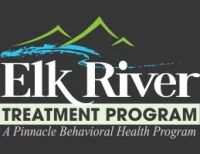
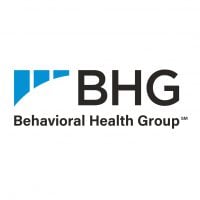
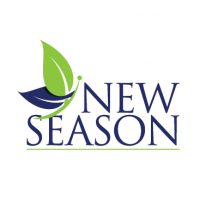
The facility name, logo and brand are the property and registered trademarks of Alabama Recovery Center, and are being used for identification and informational purposes only. Use of these names, logos and brands shall not imply endorsement. RehabNow.org is not affiliated with or sponsored by Alabama Recovery Center.


